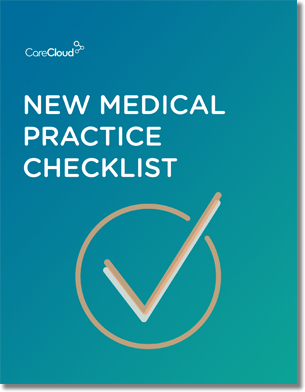Every year, legislators make changes to healthcare policies that impact the daily operations of thousands of practices across the country.
It’s only February and three crucial pieces of legislation have already passed, which we think you should know. Impress your colleagues by bringing to light these important policy changes coming into effect this year.
HIPAA Security Rule Update
In January, the Department of Health and Human Services (HHS) made changes to HIPAA that will strengthen patients’ privacy protections, provide individuals new rights to their health information and improve the government’s ability to enforce the law.
“This final omnibus rule marks the most sweeping changes to the HIPAA Privacy and Security Rules since they were first implemented,” said Leon Rodriguez, director of the HHS Office for Civil Rights.
Because of these provisions, patients can now ask for an electronic copy of their EMR and instruct their provider not to share information about their treatment with their health plan if they pay for treatments by cash.
The final omnibus rule also sets new restrictions on the way information is used and disclosed for marketing and fundraising purposes. It also forbids the sale of health information without patient permission.
The changes, Rodigurez said, “not only greatly enhance a patient’s privacy rights and protections, but also strengthen the ability of my office to vigorously enforce the HIPAA privacy and security protections, regardless of whether the information is being held by a health plan, a healthcare provider or one of their business associates.”
The rule modifications affect vendors by increasing restrictions for the methods they use to receive protected health information. This was in response to a HHS report that stated some of the largest security breaches have occurred through contracted vendors.
Noncompliance penalties for business associates can incur a maximum penalty of $1.5 million, depending on the severity of the infraction. Medical vendors have up to one year after the 180-day compliance date to adjust contracts.
For more information, the official rule can be viewed in the Federal Register.
Physician Payments Sunshine Act
In an attempt to increase transparency and reduce conflicts of interest in financial relationships between healthcare providers and manufacturers, the Centers for Medicare and Medicaid Services (CMS) issued the Physician Payment Sunshine Act.
Starting August 1, pharmaceutical and DME companies will be required to keep data about payments, gifts, meals and other transfers of value given to doctors and teaching hospitals.
“Disclosure brings about accountability, and accountability will strengthen the credibility of medical research, the marketing of ideas and, ultimately, the practice of medicine,” said Sen. Chuck Grassley (R-Iowa), who co-authored the legislation.
Also, moving forward, manufacturers and group purchasing organizations will be forced to disclose physician ownership and investment interests in the company.
The final rule requires manufacturers to report the first round of data collection to the CMS by March 31, 2014. The data will then be posted online by Sept. 30, 2014.
In order to avoid penalties, it will be important for physician offices to encourage their vendors to report by the set deadline.
Medicaid Pay Raise
Now for some great news for physicians who treat Medicaid patients.
The Congressional Budget Office is saying that Medicaid will gain 7 million new enrollees in 2014.
Because the government wants to ensure doctors keep treating the indigent population, even though Medicaid tends to pay less than private insurance, the new healthcare law will include a provision that raises primary care reimbursements in Medicaid to match those of Medicare.
On average, that will mean a 73 percent raise for Medicaid doctors, according to researchers at the Urban Institute.
This is a change we believe will benefit both doctors and patients alike.
Do you approve of these new regulations or do they impede your practice’s ability to treat patients? Let us know in the comments section below.

Do you know what you need when setting up a new medical practice?



